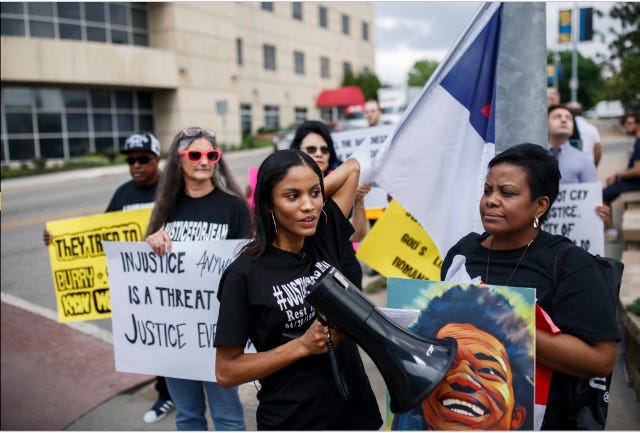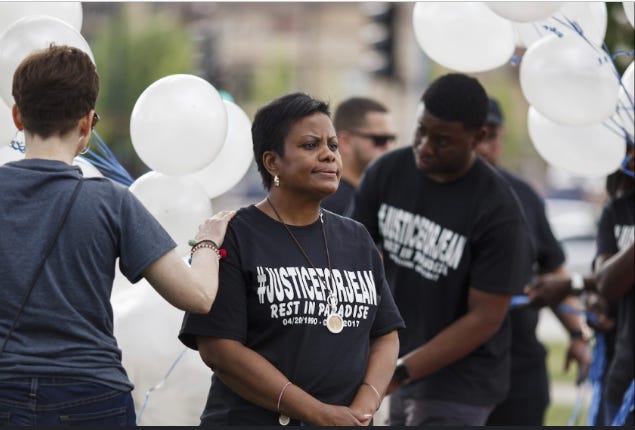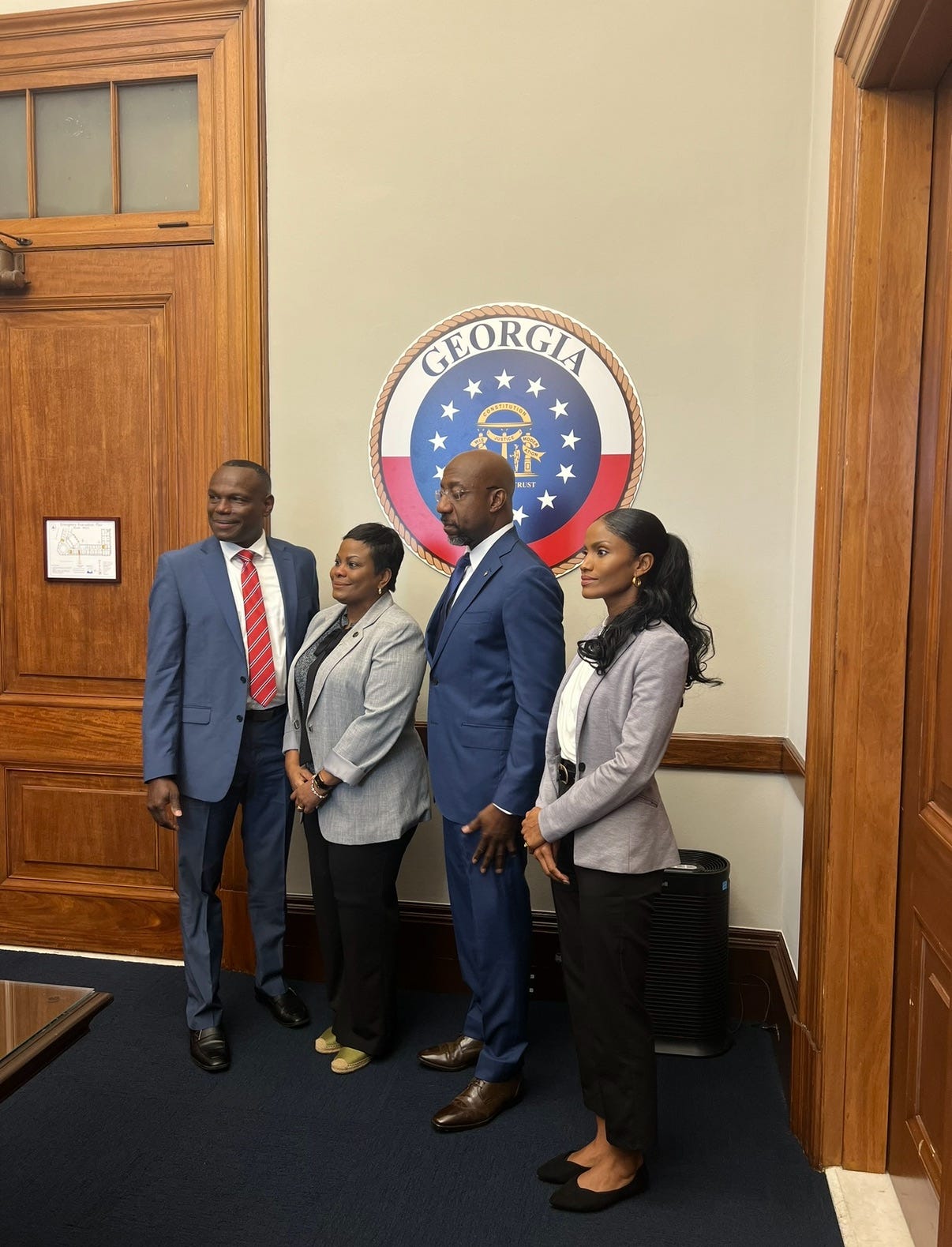Community Resources for Documenting Deaths in ICE Custody
Re-upping some video tutorials I put together last year, and sharing some additional tools for community to deal with the rapid rise of ICE detention deaths
Happy Tuesday, freedom lovers and justice dreamers!
I begin this post with a meditation and end it with an offering. They’re delineated by headers so you can pick one or the other as your preference dictates. But I hope you’ll consider engaging with both.
Preparing for Death
“Are you sure,” she asked solemnly, “that you really want to do this? Like, are you ready for it?”
I walked outside my law office into the hot, mid-May Nashville sun. Phone in hand, I sat down on the concrete sidewalk by the busy street on 8th Ave. South to give the phone call, and the question, the attention it deserved.
As a brilliant and sensitive ob-gyn resident, my girlfriend at the time would sometimes come home from a shift devastated and numb after losing a patient during a delivery. She’d get in the shower, pull the blackout curtains over the windows, and crawl into bed holding back tears. She knew what death looks like up close, and she knew I didn’t.
“Once you say yes, you really can’t ever go back.”
I followed my gut, even though I wasn’t totally convinced, and told her, “yes.” Then I went inside and informed Jean Jimenez’s family I’d be their wrongful death lawyer.
Since that moment, eight years ago, I’ve seen more death up close and experienced more families’ suffering than I ever wanted to. Dozens of cases, hundreds of thousands of documents, hours of depositions, years of struggle, and too many lost souls later, I know she was right. Saying “Yes” meant I wouldn’t ever go back to the world I lived in—a world before I knew a death in DHS custody will probably be followed, sooner or later, by someone calling to ask for insights on how to respond.
Jean’s family has taught me so much about how to fight and win justice struggles. They showed me how to mourn and memorialize collectively in ways that build solidarity, strength, and change.
They’ve shown how important it is to honor the legacy of a lost loved one by materially supporting those locked away and their communities.
By moving together, with love, faith, and clarity of purpose, they mobilized around tragedy and built a story of redemption that honors Jean’s memory.
Through art, through song, through prayer, through community, and in reliance on a shared vision, the people most impacted by in-custody deaths can become the people who work to reduce and ultimately eliminate them.
That’s the legacy, then. Not the tragedy.
Over time, working together, we — hundreds of us, working together — helped bend the curve and reduce mortality in DHS detention.
Congress acted, laws changed, courts stepped in, and fewer people died senseless deaths. It was neither perfect nor permanent. But it was effective. And it still can be.
FY20 is COVID. FY24 is Biden trying to use performative violence to avoid losing. FY25 is Trump.
And here we are: Deaths on the rise again.
Nobody should have to know all this stuff, because all this stuff shouldn’t happen in a rational world. But we live in this world, not a rational one. So people do have to know it. Once we know it, we have to share the knowledge, so we can bring about the world where it’s no longer necessary. A world where people don’t die in cages because people don’t lock each other in cages.
My relationship to people who passed away has changed radically since taking Jean’s case. When we start waking up to the mysterious ways consciousness works and the ancient enigma of spiritual connections between what some call our souls, we can make space for the idea that what we call life is fleeting, constrained, and illusory. Being open to that insight in turn opens us up to receiving help from those who are “gone”, especially if we know they’re not. I’ll just leave it there.
I think my intention behind this post is mostly to invite anyone who’s struggling with the question my then-girlfriend asked me eight years ago—“are you sure you’re ready to do this”— to think about the legacy you want to leave when you’re gone.
The movement to protect and honor human life and dignity amidst the planned expansion of ICE’s death machine will require more brave, conscientious, open-hearted, and creative contributors. Maybe that’s you. It’s okay if it’s not. But don’t say “no” out of fear.
Tools to Orient Our Work to Rising Deaths in Custody
Since more people are dying, it feels important to help level up our communal knowledge around deaths in custody, so that we can save time and share a vocabulary.
To that end, I’ll share this 10-minute Field Guide to Documenting Deaths in Custody video I created last June, when it became clear Joe Biden was going to allow more people to die in custody in an effort to avoid electoral defeat. If you’re strapped for time and wondering what to expect in the wake of a death, or how to research a previous one, this is a good place to start.
Then there’s the longer version of this talk, Body of Evidence, where I do an in-depth analysis of the documents I briefly analyze in the Field Guide. If you’re working on an in-custody death case, I’d highly recommend watching this one in full.
Here’s a link to the investigation tool we’ve shared with families and teams in the wake of an in-custody ICE death.
Here’s a link to a Justice Visioning tool families have used to help prioritize legal and non-legal actions they can take after losing a loved one. It’ll help theorize and actualize effective campaigns that aren’t captured and demobilized by the constraining form of “law”.
Here’s an updated presentation Jean’s sister and I offered to Immigrant Advocates Network, and then revised four years ago as COVID began raging through ICE detention facilities. It’s going to require access permission, but just request it and I’ll grant it.
There are so many other amazing resources from specific rapid response teams, and if just one of you would find those resources useful, I’ll compile and share them in another post. Just let me know.
Hang in there.













Quite conveniently, these posts are time-stamped, and reading them is free. Taking the time to do so would provide the answer you seek. Assuming, of course, you’re not just asking the question in bad faith because you’ve nothing more constructive to do with your time and energy.
Very much appreciate the work you do, Andrew. I can't imagine the toll it takes. The piece I continue to struggle with is how so many people in this country do not believe migrants and noncitizens deserve human rights. They don't care if they die in ICE detention. The lack of empathy is staggering.